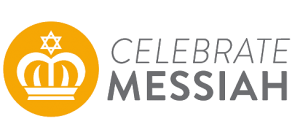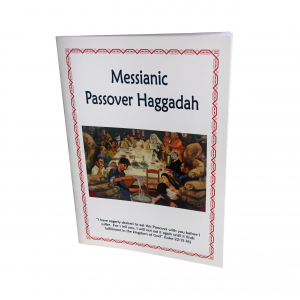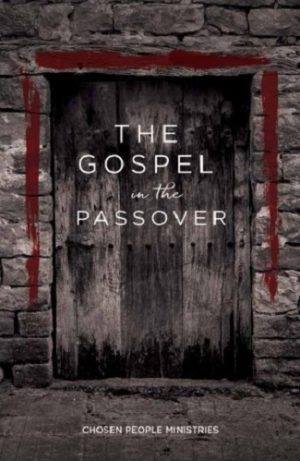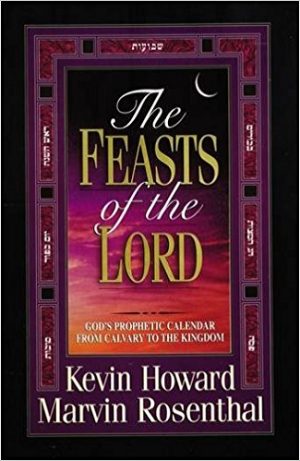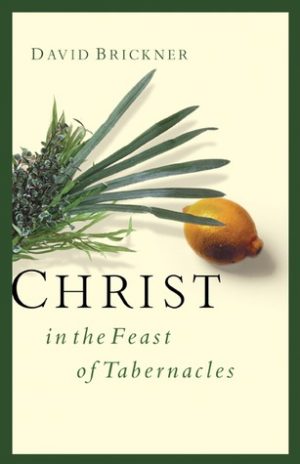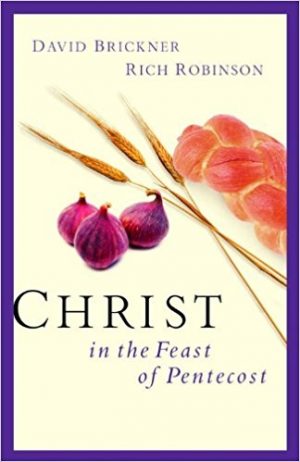A Testament to God’s Faithfulness
Shalom, dear friends,
We see the dramatic rise of new Messianic music today and musicians, especially in Israel, including Joshua Aaron, SOLU, MIQEDEM, and others who are writing Israeli-style Messianic music, unlike the older, more eastern European tunes. The older style gave powerful testimony to a generation of post-Holocaust Jewish people, confirming you can be Jewish and believe in Jesus. At the same time, these new Israeli sounds make it clear Israelis who believe in Jesus are not only still Jewish but, by culture and nationality, proudly Israeli.
Many Messianic congregations worldwide have embraced this new form of music, and it is an authentic part of our worship life and witness to how you can be Jewish and believe in Jesus. What a joyful Jewish testimony for the Lord!
Messianic Jewish Music for All
Rabbi Stuart Dauermann1 is one of the early fathers of Messianic music who continues to lead worship and write today. I asked my dear friend Stuart about his pilgrimage in Messianic music and wanted to tell you some of his thoughts.
I am so grateful to Stuart for his treasure trove of musical contributions to the corporate life and testimony of today’s growing Messianic Jewish community. Singing songs expressing our love for the Lord is always a sign of a vital and growing movement of the Spirit.
Our Messianic Jewish music is so essential to our identity as Messianic Jewish people and for our witness. If the number one objection Jewish people have about believing in Jesus is they would no longer be Jewish, then our music might be the loudest and sweetest testimony to proving we keep our Jewish identity. At our core, we are always who God made us (1 Corinthians 7:18), even more so when we recognize He created a covenant people whom He called for His specific purposes.
Every Jewish believer in Jesus we meet is a testament to God’s covenant faithfulness. When we lift our voices and sing Messianic songs within our hearts, we not only affirm we are Jewish followers of Jesus but also identify with and love our people.
Enjoy the rest of the newsletter, and please continue praying the Lord will put a new song in the hearts of Jewish people worldwide. You can help make this happen by praying and standing with Your Mission to the Jewish People.
Blessings,
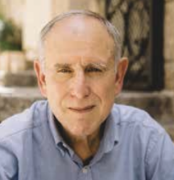 |
Mitch Glaser President of Chosen People Ministries |
1 Dauermann earned music theory and music education degrees from the Manhattan School of Music. He later completed a PhD in Intercultural Studies at Fuller Seminary
An Interview with Stuart Dauermann
 How do you define Messianic Music?
How do you define Messianic Music?
I used to define Messianic music as Jewish in flavor and apostolic in doctrine. I no longer define it that way because it left out the element of communal location. I now favor this definition: “Messianic music is music that is Jewish in flavor, apostolic in doctrine, and expressive of the covenantal and social location of Messianic Jews as part of the remnant within Israel and not outside of it.”
How did you begin writing Messianic music?
I attended an American Board of Missions to the Jews (Chosen People Ministries’ older name) meeting in New York City, where the leaders sought to communicate in Jewish ways to Jewish people. However, as I told the director there, the music in the meetings sounded very un-Jewish. The music actually implied that Jewish people who believe in Jesus lose their identity as Jews. Since I was going to music school then, he challenged me to write some better music. So I did!
What might the future of Messianic music look like?
Messianic music will lose its power and lose its way if those responsible for it themselves lose clarity on their identity as Jewish believers in Jesus. The music must not only be biblically and theologically sound but must also be an authentic expression of Jewish faith in Jesus the Messiah. To achieve this, over the past thirty-five years, I have increasingly written music based on Jewish liturgy, which itself expresses the voice and soul of the Jewish people. Only by hitting the right biblical, theological, communal, and cultural notes will it be possible for Messianic music to be spiritually enriching and something not only lively but alive.
A History of Messianic Jewish Music
Singing and dancing are a central part of Jewish culture and religious life, and how much more exciting for those who can rejoice in their relationship with the Messiah! Music as joyful worship is an essential part of biblical life. Psalm 95:1 encourages us to sing before the Lord: “O come, let us sing for joy to the Lord, let us shout joyfully to the rock of our salvation.” Songs in the Bible express a variety of emotions, including gratitude (1 Samuel 2:1–10; Luke 1:46–55), adoration (Revelation 4:8), exultation (Exodus 15:1–21), and also mourning: “Therefore my harp is turned to mourning, and my flute to the sound of those who weep” (Job 30:31).
The Birth of Modern Messianic Jewish Music
Messianic Jewish music draws inspiration from the vast tradition of scriptural songs and liturgical expression. Messianic music employs the sounds of the Jewish Diaspora and the rhythms of Israel. Today in the Messianic Jewish world, countless artists have emerged, and more are coming.
Modern Messianic Jewish music originates in the Jesus movement of the late 1960s and early 70s. In 1972, a group of young Jewish hippies who came to faith in Messiah formed a singing group, the Liberated Wailing Wall. Stuart Dauermann, a Messianic rabbi and musician, wrote much of the group’s repertoire in a “Jewish gospel” style. This musical group toured all fifty states and six continents and engaged 150 members during its thirty-eight-year history.
Later, in 1979, the Messianic group Kol Simcha recorded its first vinyl, The Sound of Joy. Based out of Philadelphia, this group also toured extensively in the United States and played at several music festivals in the former Soviet Union. The Liberated Wailing Wall and Kol Simcha weaved eastern European niggunim (wordless melodies) and choral arrangements into their songs, and, of course, lots of tambourines and dancing. As Messianic Jewish congregations grew in the 1970s and 80s, new Jewish believers began incorporating this music into their Sabbath worship services.
Joel Chernoff, one of the pioneers of Messianic Jewish music, formed the group Lamb in 1972 with Rick “Levi” Coghill, a studio guitarist. Lamb wrote and played folk-rock Messianic songs for twenty years. The band produced fourteen albums, some of which made it to the top ten of the contemporary religious charts. Some of Lamb’s most notable hits are: “The Sacrifice Lamb,” “Clap Your Hands,” and “I Will Talk to My Brothers.” Chernoff went on to release two solo albums after the group dispersed.
The Next Generation
In the 1980s, other singing groups formed, including Israel’s Hope with Paul Wilbur, Marc Chopinsky, and Rene Bloch, an acoustic trio with musical excellence. Although the band only recorded two albums, they composed several songs Messianic believers still sing today, like “Come Let Us Go Up” and “He Shall Reign.”
Paul Wilbur went on to develop his own projects, including the 1996 release of Shalom Jerusalem. A live recording of a concert in the Holy City, this album revolutionized how the Jewish and Gentile world looked at Messianic Jewish music. This album includes classics like “Roni, Roni, Bat Zion” (“Rejoice, Rejoice, Daughter of Zion”), “Baruch Haba” (“Blessed Is He Who Comes”), and “Mah Tovu” (“How Good”). At this concert, musicians sang in Hebrew and English and used various instruments, while Messianic Jewish pioneer David Loden conducted a choir. From there, Wilbur recorded two other live concerts, “Lion of Judah” and “Jerusalem Arise.” His work is integral to worship in many congregations today.
Another notable Messianic Jewish musician is Marty Goetz. He has been recording music since 1985, including his beautiful album The Love of God, which combines the sounds of Broadway with contemporary worship music. He currently leads “House of Worship,” a time of weekly praise music live on social media. His daughter, Misha, is also a worship leader and recording artist.
As you can see, Messianic Jewish music offers a vast array of musical styles. Each of these artists’ sounds varies greatly, yet all compose songs based on inspiration from biblical narratives and themes.
Growth of Messianic Jewish Music in Israel
With the Israeli release of an album called Praise to Our God, 2004 was a crucial year for Messianic Jewish music. The Messianic Jewish Alliance of Israel sponsored this live recording of a concert, and Jamie Hilsden produced all the music. Israeli believers from across the Jewish nation submitted songs to compile a songbook, and this album was the fruit of their endeavor. This album ushered in a new generation of Messianic artists, like Sarah Liberman, Keren Silver, Yaron Cherniak, and, most recently, Emanuel Roro. Five more concerts have occurred because of the success of the first one.
Hilsden also formed his own music group, MIQEDEM, with other Jewish believers from Israel. While at Messiah Conference, one of the largest Messianic gatherings in the United States, Hilsden would lead and collaborate annually with a group called “The Band from the Land.” In 2015, he asked some of the members if they wanted to become an official group—and sure enough, they formed MIQEDEM! They released their first album in 2016 and then released two more.
The Hebrew word miqedem means “from the east” or “from eternity.” This music group’s songs blend contemporary Eastern sounds with words from the Hebrew Scriptures. One of the members of MIQEDEM, Shai Sol, released her solo album and is also working on new musical endeavors.
Another artist of note in Israel is Shilo Ben Hod. He put together a group called SOLU, who have a “vision to prepare the way for revival and Yeshua’s return.” This band features young Israelis and releases live YouTube worship sessions. Ben Hod has two albums of his own featuring members of the group. They have toured the United States twice and have more music coming out soon!
One of the most popular Messianic artists in Israel is Joshua Aaron. After releasing “Gadol Elohai” (“How Great is Our God” in Hebrew), he acquired millions of hits on his YouTube channel. Now, he owns a music house in the Galilee region of Israel and records a plethora of music. Notably, he recorded two live albums, one at the Tower of David and the other at the Garden Tomb. Joshua Aaron most recently collaborated with Aaron Shust, a Christian artist. Shust released a groundbreaking song called “Zion,” which quotes extensive amounts of Scripture. During the song, he even sings the Shema (Deuteronomy 6:4), a traditional Jewish prayer, in Hebrew.
Messianic Jewish music will continue to grow and flourish as it is based on an ancient biblical foundation of song, combined with much innovation. There will be more to come and new talent to discover. Of course, much has changed since the music from the 1970s. Yet, each musical contribution is valued and necessary and plays a part in the history of Messianic Jewish worship. May we continue to honor this legacy and look forward to what God has in the near and distant future.
The Story of Messianic Music in Israel
Worshiping the Messiah through music has been a crucial part of life for followers of Jesus (Yeshua) since the first century. Paul exhorts believers in Messiah to be filled with the Spirit and speak to one another in psalms, hymns, and spiritual music (Ephesians 5:18–19). Honoring God with our voices through song is still essential to worshiping Him.
When Jewish people began to return to Israel in the 1800s, new music also flourished in the land. Today, Israeli music is hard to describe because it is so diverse and continually changing due to ongoing waves of new immigrants who bring their own distinctive styles. Music in Israel thus draws on influences from various places, including the Middle East, Central and eastern Europe, North and South America, and North Africa. Israeli musicians and composers’ creativity and inventiveness indeed stem from around the world.
Messianic Jewish people from around the globe also immigrated to Israel, and it was only natural this small group wanted to express its faith in Jesus as Messiah by singing in the revived Hebrew language. The emergence of Messianic worship songs began in the land even before Israel became a nation. The development of modern Israeli Messianic worship is like flowers blooming in a newly planted botanical garden.
Ann Hilsden is not only a historian of modern Israeli Messianic worship, but she has also contributed to its nurture and growth. She and her husband, Wayne, moved to Israel in 1983 and established King of Kings Community in Jerusalem, from which much Messianic music has arisen. Ann has carefully documented Messianic music in Israel. In one of her articles, she describes the development of a unique Hebrew hymnal Moshe Ben Meir created as early as 1950. Ben Meir also wrote the first modern Messianic Hebrew worship song, “He Comes with the Paratroopers.”
The next crucial stage for the body of barely 500 Messianic Jewish believers came in the 1960s with the publishing of the Blue Hymnal, which included 212 songs. The translation and editing of hundreds of worship songs was a daunting task. Soon after, Arieh Bar David, a young Messianic believer and competent musician, put together a new compilation of more than 268 worship songs. He carefully worked through the musicality of the melodies while others assisted with translating lyrics into Hebrew. Victor Smadja, an elder at the Jerusalem Messianic Assembly and founder of Yanetz Press, published this new hymnal, which became the standard for the growing Messianic community in Israel. It was well-used and became known as the Brown Book.
The next significant development came in the 1970s and 80s when Bar David began writing a new generation of worship songs with many new immigrants to Israel. Most notable were David and Lisa Loden, Batya Segal, and Elisheva Shomron. With abundant talent and love for the Messiah, a series of recordings, worship music, concerts, and symposiums emerged. Ann Hilsden describes this Spirit-led development in the following way:
One cannot explain this kind of musical renaissance simply in human terms. Surely it was more than imparting musical and lyrical skills and encouraging words. I see this as a divine “kiss” on a newly regathered body of believers, in their own land, and for their own expression.
During the following years, the Messianic body in Israel produced a flood of original songs, many of which became part of regular worship in their congregations. In the 1990s, the Peniel congregation in Tiberias collected many new pieces and prepared each in a new format with an interlinear translation. These songs were published in a collection called Zimrat Haaretz L’Yeshua.
Today, the number of believers has soared to greater than 25,000, with more than 200 congregations spread throughout the Holy Land. The Messianic Jewish Alliance of Israel sponsors regular concerts every two years featuring new musical artists and their songs. There are also several professional recording studios for Messianic Jewish musicians. In addition, the Yuval Ministry in Jerusalem, now led by Yoel and Liel Davis, provides music lessons to children and guidance for new musicians who need assistance in composing and recording music.

Emanuel Roro
Some Israeli Messianic groups and artists like MIQEDEM, SOLU, Joshua Aaron, Sarah Liberman, and Emanuel Roro are known internationally for producing and performing innovative and inspirational worship songs. Those who have led the way mentor and assist these emerging musicians. The unity and cooperation among Israeli Messianic worship leaders and performers are also encouraging.
The vibrant and dynamic nature of Israeli Messianic worship music reflects the healthy growth of the body of Messiah in Israel. The artists are writing songs reflecting the language and culture of their country, and both young and older believers in Messiah sing along. Israelis are praising the name of the Lord in the Promised Land. We long for the day when “all Israel will be saved,” and we will praise the name of the Lord together (Romans 11:26).
The Jewish Impact on Popular Music
Music permeates the Hebrew Scriptures. For example, we read about Jubal, who “was the father of all those who play the lyre and pipe” (Genesis 4:21). Moses and Miriam sang, as did Deborah, Hannah, and David. The psalmist calls upon all the earth: “Sing to the Lord a new song” (Ps 96:1). From singing to playing instruments of all kinds, making a joyful noise is ingrained in the Jewish soul since ancient times.
Jewish music might start in the biblical period, but it extends until today. While one might indeed be able to identify a particular Jewish song by its instrumentation or lyrics, the contributions of Jewish people to the world of musical entertainment are as broad, wide, and varied as the artists themselves. Jewish influence crosses all genres and media—from Broadway to radio, rock to reggae, and everything in between.
The Modern Emergence of Jewish Musical Talent
If there were ever a style of music considered to be “Jewish,” it would be klezmer. Klezmer is a Yiddish word formed from two Hebrew words: כְּלִי (k’li), meaning “vessel,” and זָמִיר (zamir), meaning “song.”
As a vessel of song, “klezmer was a term applied to a person, not a style of music. Somewhere along the line, the term klezmer also began to denote the style or repertoire of music that the typical Jewish folk musician played.” Typically including a violin, a bass, and a hammered dulcimer (a stringed instrument), this style of music is often characterized by “a famously expressive clarinet,” which was added later.

Irving Berlin
Given its mass appeal, the klezmer style found its way into film and classical music. Klezmer roots also appear in Irving Berlin’s 1911 “Alexander’s Ragtime Band.” Later, in 1924, the Paul Whiteman Orchestra revealed George Gershwin’s “Rhapsody in Blue” to the world with a famously expressive clarinet. Irving Berlin, whose given name was Israel Isidore Beilin, and George Gershwin, whose real name was Jacob Gershwine, were born at the end of the nineteenth century and were heavily influenced by the Jewish Enlightenment, when new Jewish music began to flourish.
The late eighteenth and nineteenth centuries were considered the period of the Jewish Enlightenment, called the Haskalah. Restrictive conditions in the ghettos, to which Jewish people in western Europe were confined since the sixteenth century, discouraged and even prohibited traveling Jewish musicians. After this long hiatus, new musical opportunities presented themselves. One scholar describes the development: “The entry, in considerable numbers, of Jewish composers and performers on the musical scene in the middle decades of the nineteenth century was a phenomenon.”
Music on Stage and Screen
The Haskalah era produced many of the names recognized today as some of the most prolific writers of musical theater. This category includes Oscar Hammerstein II, Richard Rogers, and Leonard Bernstein. Their success and influence were not specifically because they were Jewish. But the Jewish history with which they were raised certainly led to a “ferocious industry and completely new ideas,” the kind to revolutionize Broadway.
Theater was only the beginning, as film became a major outlet for Jewish creativity and provided opportunities for everyone to experience the musical genius of these Jewish creatives. Of the eight major film companies around the turn of the century, six were “essentially Jewish creations, and Jews played a major role in the other two.” In 1954, one of them—Paramount—released a film propelling an Irving Berlin song to the status of best-selling single for Christmas ever.
Although Bing Crosby first performed the song “White Christmas” in 1941 on his radio show, the release of Holiday Inn in 1942 (another Paramount film) and White Christmas solidified its success. Berlin’s father was a cantor and a kosher butcher. Hearing his father sing the Jewish prayers likely impacted young Irving. Yet, as with many other Jewish artists, his craft was never about his Jewish identity.
One of the hallmarks of the Enlightenment was a national pride over one’s country. For Berlin, he was American first, Jewish second. A Jewish composer writing a Christmas song would have been unthinkable otherwise. In 1954, Berlin was asked about how a Jewish person could write a song called “White Christmas.” He responded, “I wrote it as an American.” Yet, according to an ethnomusicologist, even though “he rejected Jewish religious practice, married Protestant and Catholic women, and celebrated Christmas . . . he retained his Yiddishkeit (Jewishness) throughout his life.”
Jewish Impact on Contemporary Music
The 1940s and 50s were tragic decades for Jewish people. The global impact of the loss of millions of Jewish people during the Holocaust was devastating. Those who survived it were not the same afterward, and those who were born in the years immediately following did not enter the same world their parents knew as youth.
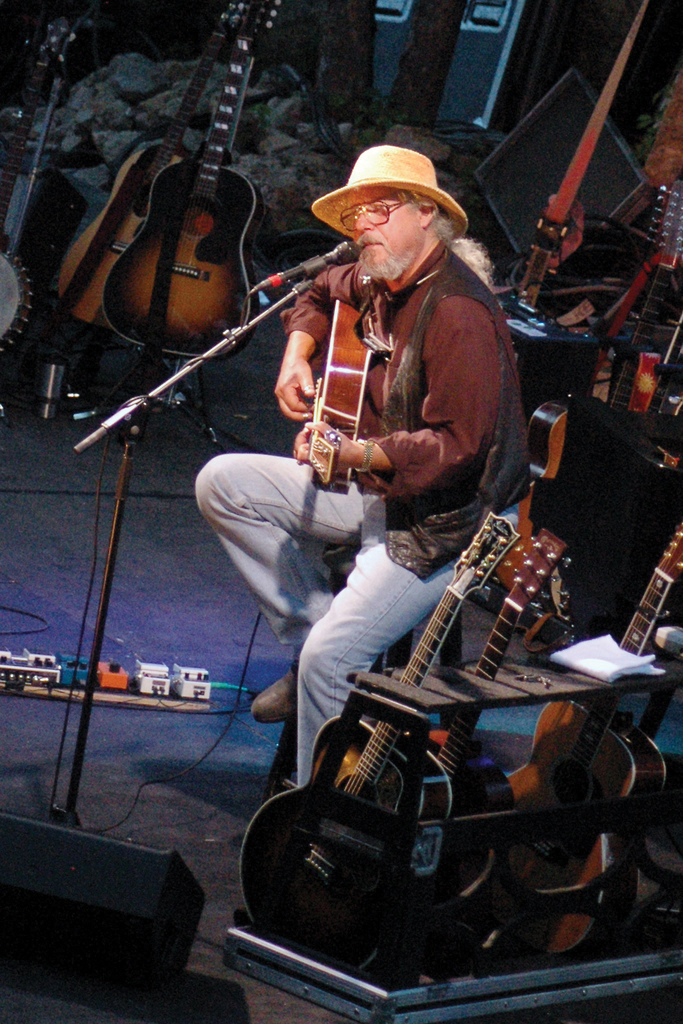
Arlo Guthrie
The shock and horror of the Holocaust led to a generation of Jewish artists like Arlo Guthrie, who would stand against social injustice, racism, and other forms of oppression. Arlo was the son of folk singer Woody Guthrie and Marjorie Greenblatt, a Jewish activist, who herself was the daughter of a Russian-born Jewish poet. Guthrie penned the satirical “Alice’s Restaurant” in 1967. In the song, he appeared to criticize his arrest for improperly disposing of trash, but the song ultimately projected an anti-Vietnam War and anti-authority message:
Reflecting on why “Alice” still connects with new audiences despite its Vietnam War and military draft protest roots, Guthrie cites its timeless theme of questioning authority.
“I’ve remained distrustful of authority for my entire life. I believe it’s one of the great strengths of a democracy, that we take seriously our role as the ultimate
authorities by our interest and our votes. Younger people have always had a rebellious streak. It goes with the territory of growing up.”
Guthrie was not the only Jewish artist to add his or her voice to the movement for social justice. Paul Simon and Art Garfunkel were two Jewish boys from Queens who got together when they were eleven years old and changed the world with their music. Songs like “Bridge over Troubled Water” and “Sound of Silence” can still be heard on some radio stations. Billy Joel wrote “We Didn’t Start the Fire” in 1989, a song describing major events in the twentieth century from the year of Joel’s birth in 1949 to the time of its recording in 1989.
No discussion about Jewish music would be complete without including names like Bette Midler, Idina Menzel, and the incomparable Barbra Streisand. Midler, who grew up in Hawaii, was the “Jewish outsider who learns to act a character and use her lack of civility as a means to be accepted.” Menzel, originally born Idina Mentzel, played Elphaba, the Wicked Witch of the West, in the Broadway production of Wicked (2003), and went on to voice Queen Elsa in the Disney production of Frozen, Frozen II, and a multitude of related pieces.

Barbra Streisand
Barbra Streisand is possibly the most iconic of all Jewish performers over the past six decades. According to one of her biographers, she “attended [Jewish religious school] on her grandparents’ insistence and had learned to read Hebrew, even though she didn’t understand a word of what she was saying.” Everything from her acting to her music offered her own unique style, and she also embodied and reflected the Jewishness of her time. Another biographer describes her: “She was unapologetically Jewish, and . . . she was proud of her Jewishness. To every misfit across America, male or female, miserable in his or her attempt to fit in with the prevailing social mores and behavior, she sent a very strong message . . . simple and powerful: You are not alone.”
From rap and reggae artists like Matisyahu and Lil Dicky, to rock and pop stars like Leonard Cohen, Carly Simon, Neil Diamond, Bob Dylan, Adam Levine, Paula Abdul, and Pink, Jewish men and women have undeniably influenced and are wholly part of today’s modern music scene. There are many more—too many to list here. These talented singers, songwriters, musicians, actors, and performers have brought 150 years of Jewish expression into the homes and hearts of millions. May they continue to bless the world with their music and may their creativity continue to bloom.
Jewish Contribution to Music in Australia
There has been a long and fruitful contribution to the development of music in Australia from Jewish people. In the recent past Jewish musicians – vocal and instrumentalists – have been prominent on stage and screen. Here are some of them:
 Lior Attar better known simply as Lior, is an independent Australian singer-songwriter based in Melbourne. He’s best known for his 2005 debut studio album Autumn Flow, and the children’s song Hoot’s Lullaby. Lior was born in Israel and his family moved to Sydney when he was 10. Lior performed his symphony Compassion alongside composer Nigel Westlake and the Adelaide Symphony Orchestra.
Lior Attar better known simply as Lior, is an independent Australian singer-songwriter based in Melbourne. He’s best known for his 2005 debut studio album Autumn Flow, and the children’s song Hoot’s Lullaby. Lior was born in Israel and his family moved to Sydney when he was 10. Lior performed his symphony Compassion alongside composer Nigel Westlake and the Adelaide Symphony Orchestra.
Deborah Conway AM is an Australian rock singer-songwriter and guitarist, and had a career as a model and actress. She was a founding member of the 1980s rock band Do-Ré-Mi with their top 5 hit Man Overboard.
John Foreman OAM is a musical director, event director, pianist and composer, and a well-recognised face on Australian television. He’s the man behind the music of many of the biggest events in Australian entertainment including Carols by Candlelight and the Logie Awards
 Renee Geyer was an Australian singer regarded as one of the finest exponents of jazz, soul and R&B. She had commercial success as a solo artist with It’s a Man’s Man’s World, Heading in the Right Direction and Stares and Whispers in the 1970s and Say I Love You in the 1980s. Geyer was an internationally respected backing vocalist with Sting, Chaka Khan, Toni Childs and Joe Cocker.
Renee Geyer was an Australian singer regarded as one of the finest exponents of jazz, soul and R&B. She had commercial success as a solo artist with It’s a Man’s Man’s World, Heading in the Right Direction and Stares and Whispers in the 1970s and Say I Love You in the 1980s. Geyer was an internationally respected backing vocalist with Sting, Chaka Khan, Toni Childs and Joe Cocker.
Isador Goodman AM was a South African-Australian Jewish pianist, composer and conductor. He became a household name in Australia in the 1930s-1970s, taught at the NSW Conservatorium of Music for 50 years, introduced many Australians to classical music, and contributed hugely to music making in his adopted country.
David Helfgott is an Australian concert pianist. Helfgott’s life inspired the Academy Award-winning film Shine, in which he was portrayed by actors Geoffrey Rush, Noah Taylor and Alex Rafalowicz.
Leo Rosner was a Polish-born Australian musician who survived the Holocaust in Nazi concentration camps during World War II by playing his accordion for Nazi officials. This earned the attention of Oskar Schindler, who saved his life by having him placed on his famous list. In Steven Spielberg’s Oscar-winning film, Schindler’s List, he appeared in the epilogue at Schindler’s grave on Mount Zion.
Tommy Tycho AM MBE was a multi-talented Hungarian-born Australian pianist, conductor, composer and arranger. He was associated with musical productions on Australian television for many years from its inception in 1956. The recorded version of our National anthem Advance Australia Fair that is used to accompany singers at major sporting and community events is Tommy Tycho’s arrangement. He also wrote a number of film scores.
 Red Symons is an English-born Australian musician and television and radio personality. He was the lead guitarist in the band Skyhooks, the snide judge of Red Faces on Hey Hey It’s Saturday, and a judge on talent search show Australia’s Got Talent. Symons hosted ABC Radio Melbourne‘s breakfast show from 2003 until 2017.
Red Symons is an English-born Australian musician and television and radio personality. He was the lead guitarist in the band Skyhooks, the snide judge of Red Faces on Hey Hey It’s Saturday, and a judge on talent search show Australia’s Got Talent. Symons hosted ABC Radio Melbourne‘s breakfast show from 2003 until 2017.
Simon Tedeschi is one of Australia’s most renowned classical pianists, recipient of prizes such as Symphony Australia’s Young Performer of the Year Award, the Legacy Award from the Creativity Foundation (USA), first prize in the Keyboard division of the Royal Overseas League Competition (UK), and a Centenary of Federation Medal. He has performed in major concert halls and for festivals throughout Europe, North America, Asia, and Australia, and for world leaders including former US President George W. Bush and the Dalai Lama.
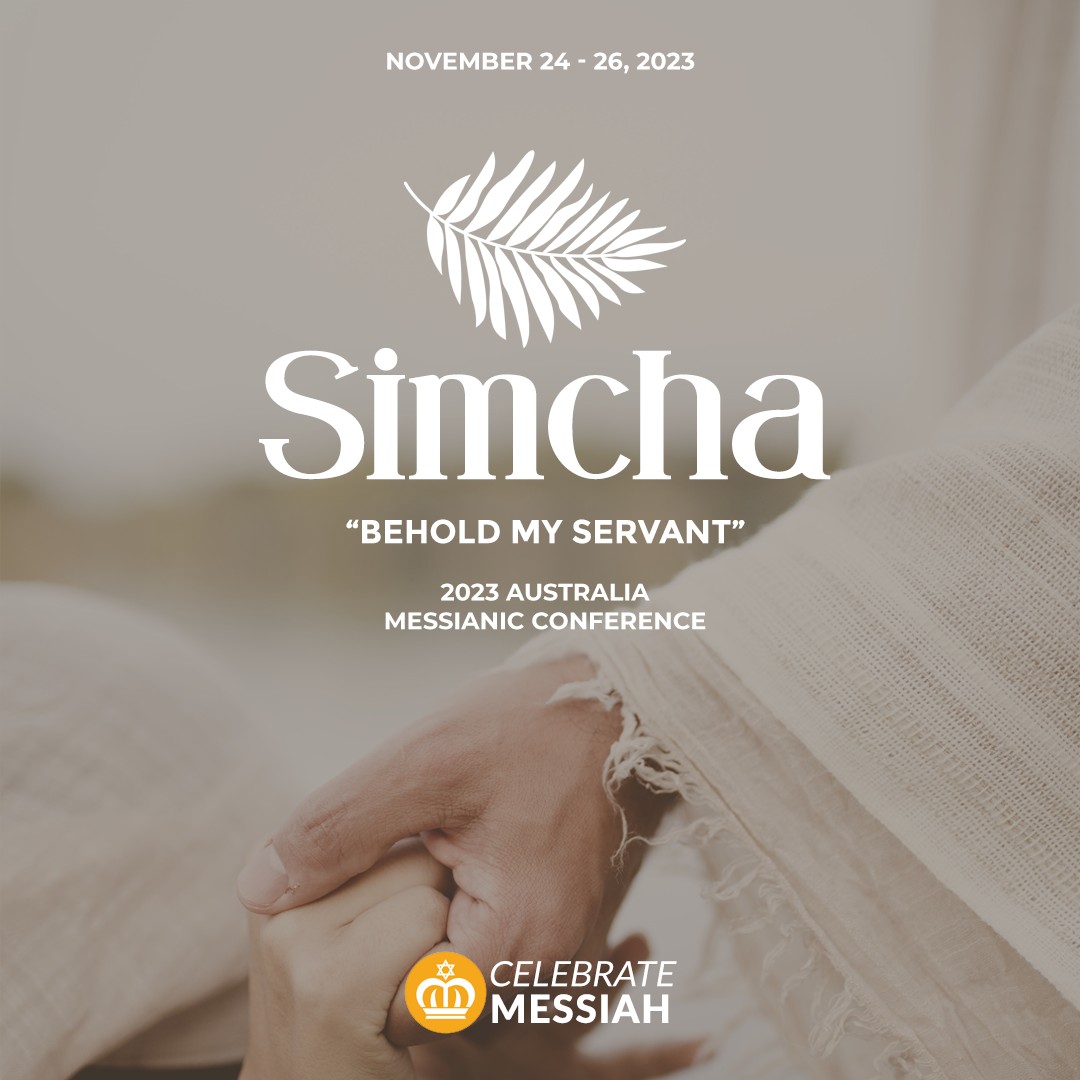
Simcha 2023
The Joy of Fellowship in the Messiah
A National Messianic Conference bringing believers together from around Australia.
Friday 24th to Sunday 26th of November, 2023
Caulfield Messianic Centre
Theme: “Behold My Servant: Revealing the Messiah in the Book of Isaiah
The Prophet Isaiah predicts the coming of a Suffering Servant of the Lord who does God’s will and brings redemption for Israel and the Nations. We will survey these prophecies in the Book of Isaiah and explore how these promises are fulfilled through the mission and ministry of Yeshua the Messiah in the New Covenant Scriptures. As followers of Yeshua, we too are called to be His servants, reaching out in His Name, to the world around us.
Come and be encouraged and equipped as we pray and work together for revival amongst Jewish people worldwide.
International Guest Speaker: Dr Tim Sigler, Co-Executive Director, Ariel Ministries

During Simcha 2023, Celebrate Messiah will host a special Youth Camp for Years 7 – 12 at Burnside Camp in Anglesea, Victoria. The youth will embark to Burnside Camp in a bus together from the Caulfield Messianic Centre on Friday early afternoon, and will return Sunday afternoon.
The youth camp will be a joyful time for young believers in Yeshua to come together and grow in their faith. The camp’s theme is also “Behold My Servant”, so that the youth may learn more about Yeshua’s servanthood. The youth will also partake in a special Shabbat dinner at Burnside on Friday night. Weekend activities will include bonfire nights, worship, ziplining, water rafting, and a seaside baptism to close the weekend.
Every camper will receive a special “Simcha 2023 Youth Camp” t-shirt to wear during the weekend.
Giving to Jewish Ministry in Your Will
When you remember Celebrate Messiah in your will, you become a partner in our life-changing work amongst God’s Chosen People worldwide, as we await the Messiah’s return.
If you would like to speak with a Christian solicitor about including Celebrate Messiah in your will, please contact us at [email protected] or call our office on + 61 3 9563 5544 for more information.
Take the Spiritual Formation Survey
Our Donor Relations Marketing Specialist, Felicity Lorenz, is conducting an online survey as part of her doctoral research through Melbourne School of Theology. The research focuses on spiritual formation in an Australian context, or how Australians perceive their relationship with God, the Holy Spirit, and the spiritual disciplines.
If you are Australian and over the age of 21, please consider taking her survey. It should take approximately 10 minutes to complete. You will be asked to rate your experiences with God and the spiritual disciplines (e.g. reading the Bible, worship, fellowship) on a scale of 1 to 5. All answers are anonymous and confidential.
